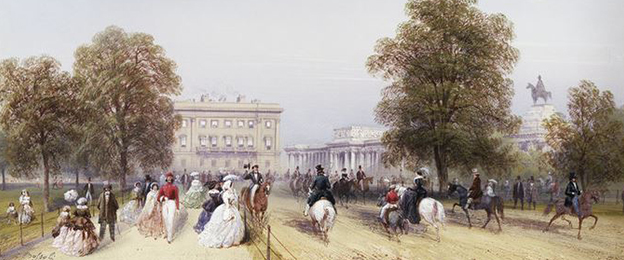ponynutz
Well-Known Member
Interesting piece about accidents in rotten row in the 1800s.

Rotten Row Accidents in Hyde Park in the 1800s - geriwalton.com
By the 1800s Rotten Row was a well-established spot and because of its popularity there were plenty of horse related accidents reported. Among them werewww.geriwalton.com
There seems to be a lot of broken reins.
'The paper also reported that “this is another instance of the dangerous consequences likely to result from the introduction of blood-horses in harness".'
This is an interesting quote and relevant to above

